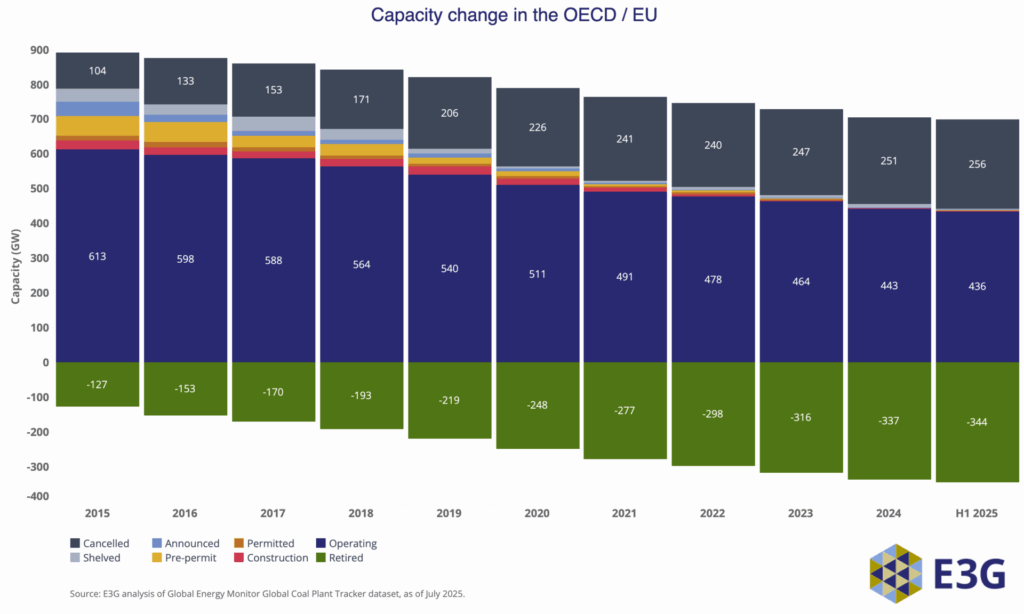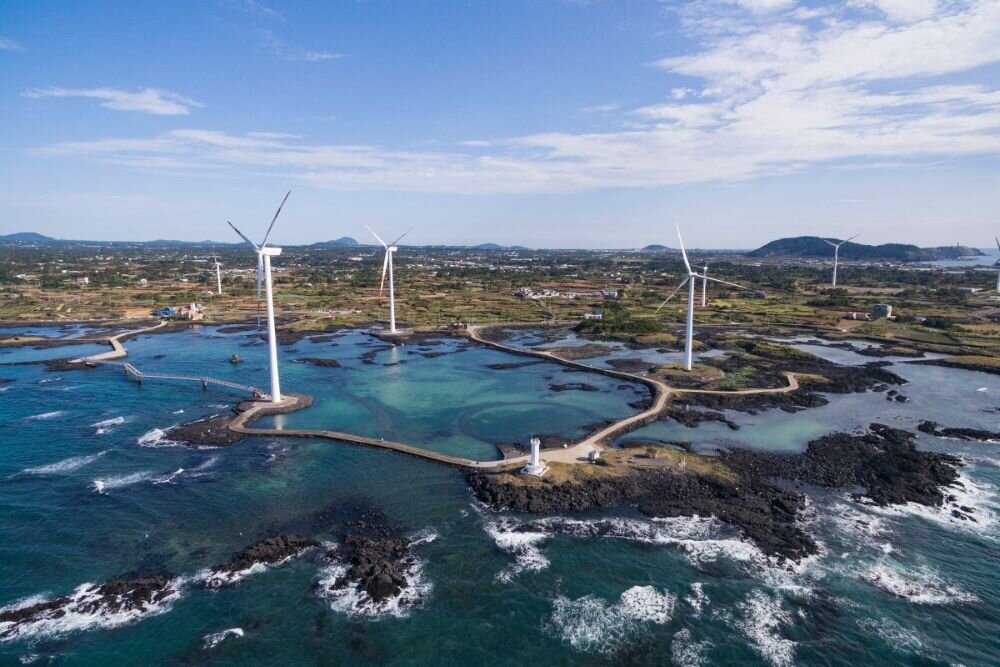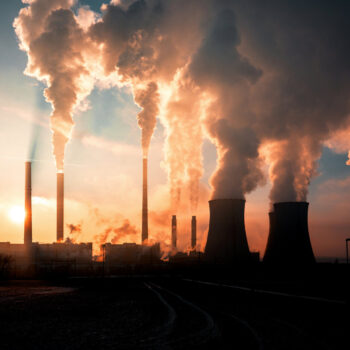To read this article in Japanese, please click here. / 当記事の和訳はこちらよりアクセスください。
After 50 years, the International Centre for Sustainable Carbon (ICSC) has closed. Having promoted so-called ‘clean coal’ technologies, its closure signals the increasing marginalisation of pro-coal voices. The organisation promoted energy strategies which pursued possible future technology options that at best reduce emissions incrementally while serving as an excuse against policy actions to lower emissions in the present.
Real-word trends away from coal power
The closure of this coal lobby group mirrors the real-world trend away from coal power. The global pipeline of planned coal power capacity has collapsed by nearly two-thirds since the Paris Agreement was ratified in 2015. In 2024, the world opened the lowest amount of new coal power capacity in twenty years. New coal power is also highly concentrated: just eleven countries are host to 96% of the world’s planned coal power projects.
A key driver of this collapse is the global boom in affordable clean energy. In 2024, 91% of newly commissioned renewable power projects globally were more cost effective than new fossil-fuel alternatives. New wind and solar farms are cheaper than new coal and gas plants on production cost in almost every market worldwide, and BloombergNEF research expects the levelised cost of electricity (LCOE) for clean technologies to fall an additional 22-49% by 2035, further undermining the economic viability of coal power.
OECD and EU countries are making major progress away from coal
The end of new coal power is in sight, and significant retirements of existing projects in the OECD and EU means that progress towards global coal phaseout is also growing.

Planned capacity (announced, pre-permit, and permitted) in the OECD/EU has collapsed since the Paris Agreement was ratified in 2015, and operating capacity is on a steady decline.
OECD coal generation peaked in 2007, and since then has more than halved. 78% of the coal capacity in the OECD and EU has either retired since 2010 or is expected to be retired by 2030, aligned with the Paris Agreement objectives. Rapid growth in solar and wind was responsible for 87% of the fall in coal during this period. However, coal retirements in OECD countries need to more than quadruple — from 19GW to over 80GW annually — to keep up with the political commitments.
Last year, the UK shut down its last coal plant. 2025 has seen Ireland close its final coal-fired power station and in so doing became the fifteenth European country to phase out coal power entirely. Finland closed its last active coal power plant (while moving one to reserve) in April.
Mainland Spain and Italy are about to be next and will phase out coal this year. The trend is clear: coal is no longer economically competitive or necessary for countries’ energy security.
To be Paris Agreement-aligned, OECD countries must phase out coal by 2030 and all remaining coal-fired power stations outside the OECD must close by 2040. Currently, Australia, Japan, Poland, the Republic of Korea, and Türkiye are the only OECD countries not a member of the Powering Past Coal Alliance (PPCA). Committing to a 2030 coal phaseout date is necessary for these countries to align with their peers in reaping the economic and energy security benefits of a faster transition to clean energy.
Unproven, unscalable, unaffordable: Countries pursuing “clean coal” risk falling behind in the energy transition
The few countries remaining that are pursuing ‘clean coal’ risk losing out in the clean energy transition. Despite the International Centre for Sustainable Carbon’s half-century legacy of advocating for the continued use of so-called “cleaner” carbon-based energy sources, ‘clean’ coal technologies remain highly costly, with very low emissions reduction potential, and stuck in a perpetual planning and pilot phase.
Japan has worked closely with the International Centre for Sustainable Carbon and continues to push clean coal as an emissions-reduction solution. However, as the world’s eighth-largest emitter, this effort has been unsuccessful. Japan is lagging behind most of its G7 peers. Despite committing to fully or predominantly decarbonise its power mix by 2035, including phasing out unabated coal during the early 2030s, coal still accounts for 32% of its power mix and the country is still planning to add one new coal plant. This lack of ambition in domestic coal policies raises serious doubts as to how Japan will achieve its international pledges, and exposes the country to major risks in falling behind the global clean energy transition.
The US is another outlier within the OECD, and is the only country in the Americas planning new coal. With planned coal capacity in the OECD and EU reaching record lows, the three proposed coal plants in the US represent isolated additions in the bloc.
Republic of Korea signalling a shift away from coal
Meanwhile, the Republic of Korea is accelerating its planned coal phase out. President Lee Jae-myung made an election pledge to shut down all coal-fired power plants by 2040, a ramp up in ambition from the country’s 2025 11th power plan, which expects coal to fall to 10.06% of the country’s power mix by 2038. The power plan also aims to quadruple renewable energy capacity to 121.9 GW by 2038, as South Korea moves away from fossil dependency and towards clean power as integral to economic growth.
Officially announcing a firm coal phase out date, as close to Paris-alignment as possible, would be a powerful signal of climate leadership. As host of this year’s Clean Energy Ministerial, the Republic of Korea has a strong position to showcase the benefits of phasing out coal, and to include a strong coal phaseout commitment in its upcoming NDC. This would add momentum to the global transition away from fossil fuels on the road to COP30 in Belem.
The closure of the ICSC is yet another marker in the inevitable end to coal power globally. The writing is on the wall for coal, and any countries continuing to promote the dirtiest fossil fuel risk losing out on today’s biggest economic opportunity.


